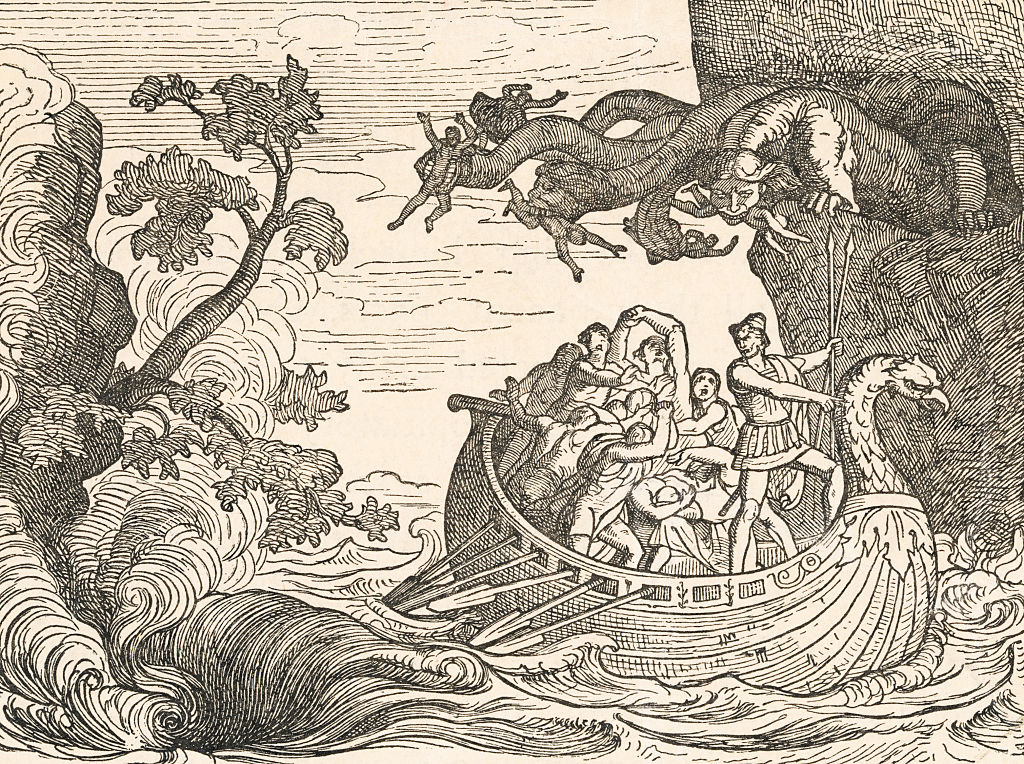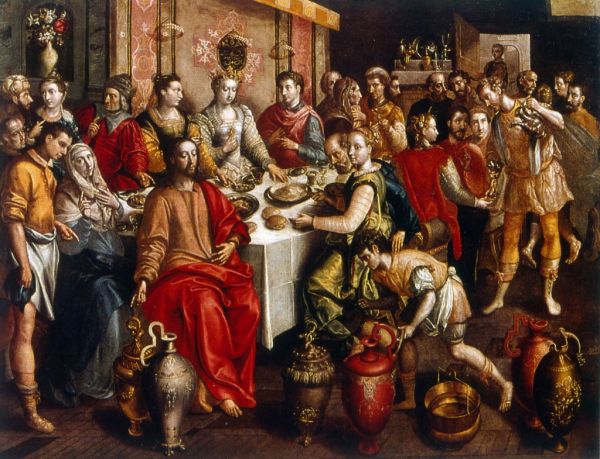Happy Sunday. Before we get into today’s essay, an announcement for Dispatch Premium members (and those on the fence about becoming premium members): We’re hosting our first Premium Town Hall on Tuesday at 8 p.m. ET. You’ll be able to interact directly with Dispatch founders and editors in an ask-me-anything style Zoom call.
We’ll send out more details in the coming days, including an RSVP link exclusively for premium members. If you’d like to join this special live townhall, be sure to join Dispatch Premium before Tuesday!
On that town hall, you could even ask about parenting, which is what writer Megan Dent covers in today’s Dispatch Faith. Parenting is almost like dieting in that every few years another new style or methodology catches on and becomes trendy. In the last few years, “gentle parenting” has done that—especially in online chatter.
But today Dent argues that gentle parenting misunderstands human nature itself, which of course affects how parents guide and direct their kids.
Megan Dent: What ‘Gentle Parenting’ Misunderstands About Human Nature

I recently recognized the afterglow of thrilling misconduct on my 3-year-old’s face. His older brother had left a piece of finished schoolwork unattended, and the younger seized his chance to grab a fistful of crayons and scribble all over it until it was illegible. Capping off his deed off with a sneering holler in his brother’s direction, as well as mine, he stepped back to revel in the strength of our reactions.
The cacophony that followed—tears, exclamations, reprimands—only seemed to fuel his amusement and defiance, until eventually I managed to extract a flicker of half-hearted contrition, and with tight lips and zero eye contact, he apologized.
Such scenes are pretty commonplace in my house, with both my sons. Have I produced gremlins who simply delight in cruelty? I ask myself. Do they enjoy the attention that arises from pushing boundaries and hurting others?
Here’s an unpopular answer: Yes. Yes, I’ve produced mischievous sprites who sometimes delight in cruelty and yes, they are willing to hurt others and push the envelope to get attention.
Bluntly stating that young children sometimes express the worst parts of our adult nature—self-serving behavior at the expense of others, lack of accountability for our actions, the incessant longing to do whatever or have whatever we want, whenever we want—clashes with many of the “gentle parenting” ideas popular among online millennial parents.
“Gentle parenting” refers to a parenting philosophy that focuses on attending to children’s emotional landscape rather than scrutinizing their behavior. Both Becky Kennedy, a New York psychologist known as “Dr. Becky” whose parenting enterprise “Good Inside” went viral during the COVID pandemic, and Mona Delahooke, author of Beyond Behaviors, encourage parents to view their kid’s behavior as “the tip of the iceberg,” advising them to explore their child’s subterranean emotional life to unlock why they may sometimes behave poorly.
Under a gentle parenting framework, my son’s decision to flagrantly ruin his brother’s homework isn’t a sign of a tricky aspect of his personality, or of human nature more generally, but rather, in Kennedy’s terms, “an expression of underlying unmet needs.” A gentle parenting response would not include any scolding or punishment, but a curious questioning of why my son felt the need to disrupt.
Believing that our children’s hurtful outbursts have nothing to do with their character and everything to do with their basic emotional needs is tempting. The implication is that if we simply meet their needs, their behavior will improve. If we affirm their emotions, and make them feel “seen,” as Kennedy often emphasizes, they’ll become kind, caring, and respectful. Right?
If it were that easy, we’d be living in an unrecognizably different world, both as parents and as individuals—a world unhampered by the forces of what Christians call sin, and what other philosophers have pondered and debated about the human condition over millennia: that even when we try our best, we are often overcome by inclinations toward self-interest, territorialism, greed, pleasure, and power.
For adults, these troubling tendencies explain the complex, painful mess of our history and our present reality: wars, terrible inequality, and meaningless suffering at the hands of human-imposed fear and brutality.
Nevertheless, a candid historical and philosophical assertion about human nature—that it contains both good and evil, both selflessness and selfishness—seems unpalatable to many 21st century parenting gurus. As such, gentle parenting professionals are liable to use reductive and ahistorical claims about human beings as the groundwork on which to build a whole series of promises: that if parents can answer their child’s every emotional need, their children will grow into confident, resilient, and kind adults.
Consider Kennedy’s core belief about the nature of human beings:
And when I say “good inside,” I mean that we all, at our core, are compassionate, loving, and generous. The principle of internal goodness drives all of my work – I hold the belief that kids and parents are good inside, which allows me to be curious about the “why” of their bad behaviors.
It’s a lovely thought and indeed, a message that must have been welcomely received by Kennedy’s private clients in her Manhattan clinic: that they and their children are fundamentally good and compassionate people.
But the business of self-help for parents relies on the mistaken notion that parenting is akin to other endeavors in life: that the work you put in guarantees a particular outcome. Many parents would prefer to believe that there is such a blueprint for raising good children; that if they follow simple steps and scripts, they have a modicum of control in who their children become.
You couldn’t build a successful parenting business these days on the basis of the more challenging, but probably more accurate depiction of human nature captured by French philosopher and Christian convert Blaise Pascal in the 17th century, who wrote in his Pensées (c. 1660), “What a chimera a human being is! What a novelty. What a monster, what a chaos, what a contradiction, what a prodigy!”
A “chimera” is an “amalgam of different natures; in Greek mythology, a monster with a lion’s head, a goat’s body and a serpent’s tail.” If Pascal’s description resonates more with parents dealing with a particularly violent tantrum from their child than Kennedy’s pithy “good inside,” it’s because parents often have a front row seat to the seemingly irreconcilable tension between sweetness and short-fused self-seeking that lies at the heart of their children’s natures—and indeed, all of our natures.
“Is it not as clear as day that there is a duality in our human condition?” continues Pascal.
Parents can be forgiven for seeking simpler, less ambiguous ground from which to embark on the complex business of raising children. Guiding and responding to a changeable, multi-natured chimera with no guarantee of a positive outcome hardly seems a pursuit that many would jump to.
But just because something is uncomfortable or challenging doesn’t mean that we can deny its reality. While attempts at emotional understanding and gentleness toward our children seem uncontroversially positive, if they are built on false or reductive assumptions about humanity, they are unlikely to reach our children in the full reality or complexity of their struggles.
By contrast, a fuller idea of children as fledgling moral agents, possessed of the same ingredients of human nature as adults—the “gremlin” or “chimera” school of parenting, if you will—can be placed comfortably within the traditions of philosophers and theologians of ages past, from Augustine in the fourth century, to Thomas Aquinas in the 13th, through to Martin Luther in the 16th and Pascal in the 17th.
This Christian theological and philosophical tradition can articulate with more nuance why it is that even when we try our best, even when we express as much love, patience, safety, and understanding as can reasonably be expected from a parent in the 21st century, we as human beings—and yes, as children—still find forces of selfishness, jealousy, or chaos rearing their heads in and among our kindness, compassion, courage, and selflessness.
Like adherents of many other faiths, Christians have a strong mandate for treating children with dignity and care, and for being curious about the lessons that they have to teach us. Jesus himself was emphatically gentle with children, including them in his ministry at every turn. When the disciples tried to turn children away from him, he rebuked them and indignantly commanded them to “Let the little children come to me, and do not hinder them, for the kingdom of God belongs to such as these.”
Biblical scholars debate the meaning behind Jesus’ words about children, but it seems clear that something about their radical vulnerability—and in their powerlessness, their unjaded trust in God’s mercy—made them spiritual models for adults, who more easily become hubristic and cynical. Jesus proclaims in the Gospel of Matthew, “Whoever becomes humble like this child is the greatest in the kingdom of heaven. And whoever receives one such child in my name receives me” (18:4-5).
Nevertheless, unadulterated impulses can lead to outbursts, like the one in which my son ruined his brother’s homework. He felt like doing it, and he lacked the moral reasoning and regulation not to.
Jesus acknowledged this other side of childhood—children’s propensity for foolish or illogical behavior—in the Gospels of Matthew and Luke. Speaking of those who condemned him and John the Baptist as corrupt, unable to recognise his reality as the Son of God, Jesus says, “To what, then, can I compare the people of this generation? What are they like? They are like children sitting in the marketplace and calling out to each other,” then references a song that children might use to taunt someone who does not conform to their expectations (Luke 7:31-32).
Gentle parenting addresses such outbursts of foolishness or cruelty in kids by reminding parents that children are little evolutionary animals, wired for survival and threat detection. In a 2022 New Yorker essay, Jessica Winter writes that one of the core themes of gentle parenting “is that children don’t defy for the sake of defiance, but that their challenging behavior is a physiological response to stress and should be seen as essentially adaptive.” Parents shouldn’t, therefore, interpret their children’s transgressions as fully formed moral acts.
But there is an inherent contradiction here: If many of a child’s feelings are animal stress responses, then should they always be named and validated? St. Augustine noticed this quality in tiny babies in his Confessions: Even when they were barely out of the womb, they expressed animalistic desires that came at the expense of others.
In one section, Augustine notes that a baby demands more and more milk, without regard for other hungry children.
I myself have seen and known an infant to be jealous though it could not speak. It became pale, and cast bitter looks on its foster-brother … may this be taken for innocence, that when the fountain of milk is flowing fresh and abundant, one who has need should not be allowed to share it, though needing that nourishment to sustain life?
These instincts toward self-fulfillment, presented so early in an infant’s life, were evidence to Augustine of the corruption and fallenness of human nature.
Modern parents may squirm to think of our children in this harsh Augustinian fashion: struck, from birth, by the mass sin of Adam and Eve in the Garden of Eden. But is this not, in essence, the very moral conundrum that we continue to face, in some form or another, throughout our lives: that is, how to ensure that our higher moral principles get the better of our animalistic desire to seek our own safety, comfort, pleasure, and advancement?
As a parent, what draws me to Augustine more than to Kennedy is the profound relief that comes from realizing that our children are subject to features of humanity that are beyond our own design, that not everything depends on our parenting skills. It’s an uncomfortable realization, but one that ultimately takes the burden of the entire human condition—which gentle parenting doesn’t seem to recognize—off of parents’ shoulders: We are not the sole determiners of our children’s future or of their character.
If you want that relief but are uncomfortable with such theological frames of reference, you can take the “sin” out of it entirely and refer to Charles Darwin, who, centuries after Augustine, carefully recorded his observations of his infant son’s instinctive responses to not getting what he wanted. In January 1841, Darwin wrote:
Has for some time often gone into passions for smallest offences,—for instance with Anne the nurse for trying to take piece of cake from his lips with her fingers … He tried to slap her face, went scarlet, screamed & shook his head.— How has he learnt that slapping tends to give pain,— like the just-born crocodile from egg, learns to snap with its weak jaws,—ie instinctively …
Whether you call it “sin” or “instinct,” it’s clear that the ambivalent characteristics our children inherit are endemic to human nature. In Kennedy’s world, underneath William Darwin’s slap might have been “massive abandonment fears and a sense of threat looming in the family,” or a feeling of being “unseen and controlled,” or “a child who is struggling and likely feels insecure.” Kennedy might remind Charles Darwin that “underneath ‘bad behavior’ is always a good child.”
But she would be missing the point that Darwin—and Augustine, and even Christ himself—was most interested in: that there’s part of our nature that isn’t morally good, something that can be tempered, formed into something more morally enlightened, and eased, and crucially, forgiven and redeemed. But it can never quite be escaped this side of heaven, as seen in Augustine’s own lifelong battles with the temptations of various kind.
As Augustine and Darwin’s accounts both show, often an “unmet need” is as simple as “I want everything my own way, because I am a postlapsarian human being.” Is this a “need” that should necessarily be named and validated in every single parenting interaction? It’s certainly not a need that will be met in the reality of our world.
A gentle parenting influencer on Instagram recently outlined such a scenario, in which the emotions underneath a child’s behavior were validated, but the hurtful behavior that they exhibited was never accounted for.
One evening, when she whispered “I love you, Sweety” to her toddler, her daughter slapped her in the face and said “I not sweety.” The parent, who realized “It had been a long day for our little one. It was her first day of preschool. She held it together all day long” responded by correcting herself: “Instead of getting angry at her for the slap, I got on her level. I said her real name” and then carried her upstairs, kicking and screaming, tucked her into bed, hummed to her, and rubbed her back until she fell asleep.
This parent is probably right that her daughter’s slapping was a result of exhaustion after a long day, rather than any overt moral failing or cruelty. But that’s the tricky part about moral accountability: Even if we have fantastic reasons for doing something hurtful, we’re still accountable for the hurt caused. At no point in this interaction did the mother say, “I understand that you’re exhausted; it’s not OK to hit me or anyone else in the face.” In validating the interaction with extreme—and admittedly, laudable—gentleness, there’s a fear that responsibility for one’s actions, a core principle of human interactions, is entirely eclipsed by the idea that we are victims of our animal shortcomings.
A core feature of Jesus’ gentleness to sinners was his understanding that they were trapped in a world in which the sinful parts of their nature were likely to be tempted and exploited, again and again. In this sense, sinners were indeed victims. But Jesus suggests that their problem was not that other human beings weren’t catering to their every emotional need (and in the process, eliding their own), but rather that they had become lost in a longing that Augustine called concupiscence: an immense desire, or ardent longing for fulfilment that often leads one astray, toward hubris, power, violence, lust, or material greed.
Augustine’s notion of concupiscence describes a longing that cannot be answered by the material world that it reaches out to; it’s a more powerful spiritual thirst, for an affirmation and a love that runs even more deeply, even more unconditionally, than parental love. It is the desire for a sense of pervasive, cosmic belonging and belovedness that can only be fulfilled by the love of God.
Jesus’ response to sinners then, is not to unquestioningly affirm their weakest tendencies—their knee-jerk reactions to stress, their yearning for power, influence, and attention, their proclivities for self-aggrandizement—but to show them, in himself, the love that is stronger than those tendencies, and that delivers them from that never-ending maze of human longing.
This theological history—what those of us who believe this would call truth—takes the yoke of the human condition off the shoulders of parents. It gives us the philosophical anchor, the confidence, not to shy away from the full reality of human nature as we find it in ourselves and our children. The best expression of gentleness in this context is a rigorous, honest recognition that faults exist within us, but that they are not ultimately the most important or powerful parts of who we are.
Paul D. Miller: The Deer, the Lion, the Beast, and the Serpent

For the website today, Paul D. Miller uses a pair of literary metaphors to explain the position conservative Christians who once again supported Donald Trump find themselves in. In one, which comes from Aesop, Christians are represented by a deer who, fleeing hunters, took refuge in a cave with a lion.
So much of our political stance comes from our perception of relative threat. Each tribe is defined mostly by what it thinks is more dangerous. Tell me what you fear most and I’ll tell you what party you belong to.
Many Christians fear the hunter (the left) more than the lion (the MAGA movement). Faced with the reality of right-wing extremism and even political violence, they reflexively cite left-wing extremism, illiberalism, and violence. But citing left-wing extremism as a response to its right-wing counterpart is to argue either that left-wing extremism justifies right-wing extremism, or that left-wing extremism is a bigger or more urgent problem.
The first argument is so obviously wrong that even my kids grasp that “two wrongs don’t make a right.”
As for the second argument, I think it’s wrong, but even if it weren’t—even if left-wing extremism were a bigger problem—right-wing extremism would still be real, still be bad, and still be worth warning against. Citing left-wing extremism does not actually respond to the existence of right-wing extremism at all.
He continues:
Knee-jerk whataboutism—citing left-wing extremism to brush away concerns of right-wing extremism—is a way of saying, effectively, “I don’t actually care about right-wing extremism. Left-wing extremism is so overwhelmingly bad it’s okay to turn a blind eye to the conspiracy theorists, thugs, and terrorists on my side.” That amounts, at least, to an abdication of responsibility and, at most, to an outright endorsement of extremism and violence, so long as it’s done in service to the right cause.
The Dispatch Faith Podcast
Author and attorney Asma Uddin has always been fascinated with religion. She grew up in a Muslim family in Miami and went on to become an attorney arguing for religious liberty causes before eventually becoming an author. On this week’s Dispatch Faith podcast, she and I talked about that background and her recent Dispatch Faith essay on polarization and interfaith cooperation. My weekly conversations with Dispatch Faith contributors are available on our members-only podcast feed, The Skiff. If you want to hear those more in-depth conversations with Dispatch Faith writers, join us!
More Sunday Reads
For The Pillar, Filipe D’Avillez has a fascinating interview with Imam Marwan Gill, a leader among Ahmadiyya Muslims—a small sect of Islam often met by persecution. D’Avillez spoke with Gill about his meetings with Pope Francis, his group’s understanding of Christianity, and religious pluralism: “I think the pope is a close friend of the Muslim world. If you go back in history, especially with Pope Benedict, it was a very complicated relationship, especially after his remarks at Regensburg. But with Pope Francis, just look at his recent trip to Indonesia, and the outcome and the impact it had. But not just the Indonesia trip! He was the first pope to visit Bahrain, he was the first to visit Iraq, and he was the first to officially receive the Ahmadiyya Muslim delegation. It’s not easy for him. He also gets a lot of criticism, but I think he’s very committed to this cause. I think there’s a general misconception about dialogue. I would recommend to our readers to read Fratelli tutti, because there he defines and clarifies the basic essence, and what it means to dialogue. It doesn’t mean that you have to reject, or renounce your own identity, or that we are going to the table to find a common religion. That’s impossible. Everyone has his identity, but I think that interfaith dialogue helps you to strengthen your own identity, because you will find so many values and teachings in common.”
A Good Word
Notre Dame Cathedral’s reopening begins this weekend after a fire nearly destroyed it in 2019. Having such deep historical, cultural, religious, and even political importance, the church’s restoration has been tumultuous at times. But its reopening is a renaissance all its own to many people, as Andrea Gagliarducci reports for the Catholic News Agency. “Victor Hugo’s novel [The Hunchback of Notre Dame] brought the cathedral back to center stage in the 19th century. The architect Viollet Le Duc renovated it by inserting the famous gargoyles into the structure. Then, starting with Napoleon—who chose Notre Dame for his coronation—the cathedral has increasingly become a national monument. Speaking to CNA, [Paris Archbishop Laurent Ulrich] stressed that the reopening of Notre Dame is ‘a renaissance, a rediscovery for the priests and faithful of Paris who have been waiting for this moment for five years.’ … The archbishop said he wishes ‘that people who come to Notre Dame discover not only a national monument but a place of Christian prayer, and that the tour route — which we have redesigned for this reopening — makes everyone know something about the Christian faith. Not everyone will become a Christian, but everyone has the right to hear about the Christian faith.’”









Please note that we at The Dispatch hold ourselves, our work, and our commenters to a higher standard than other places on the internet. We welcome comments that foster genuine debate or discussion—including comments critical of us or our work—but responses that include ad hominem attacks on fellow Dispatch members or are intended to stoke fear and anger may be moderated.
With your membership, you only have the ability to comment on The Morning Dispatch articles. Consider upgrading to join the conversation everywhere.